It’s 4:30am. I can’t find my toothbrush. Or my headphones. Or that file with the handwritten notes that I needed.
In other words, I’m writing to you from deep—like subterranean deep—transition. We moved last week into a new house in a new city with new roommates: my 76-year-old parents. The intention here is to participate in daily care for my dad, who has dementia, and to a lesser extent my mom, who has chronic illness made harder by being a full-time caregiver for about a decade now.
Daily care can mean so many things. Yesterday it meant making my dad and my daughters—7 and 10 years old—breakfast, remembering the girls’ last doses of their antibiotics after a round of strep, and that Stella likes kiwi and Maya likes plums. My dad gets herbal tea and a giant bowl of granola with macadamia nut milk. My mom gets black coffee, but not too much.
It meant a Goodwill run, asking ChatGPT about mesh networks, a call to Medicare. It meant pushing Stella on the swing at the park around the corner—trying to fill her up with undivided attention for a precious hour. It meant finding two kids handling a pond turtle and dropping it on the concrete and becoming the protector of the turtle. It meant doing the dishes and wrapping the presents and taking the recycling out.
It meant moving cardboard boxes and body aches. It meant pretending to play diner and not doing it right and trying to teach a 7-year-old to be more graceful with her 76-year-old grandfather while also acknowledging her big feelings with big change. It meant braiding Maya’s hair before she went to bed, just as my dad used to do for me. It meant doing what I could and knowing it would never be enough and learning how to live with that.
My brother also moved with his family just a five-minute walk away and they, too, are committed to sharing in the daily care for my parents. My brother—a poet—takes long meandering walks with my dad, pointing out little things about the plant and animal life all around and ensures that he has plenty of his favorite coconut LaCroix sparkling water. He got the TV up-and-running so my parents could watch summer Olympics and Jeopardy. He and I are building a google doc called “The Art of Taking Care of Dad” together and in it there are things like: music is everything, folding is soothing, find the time it takes to make it consensual.
My brother’s wife is doing lots of primary care for their two young boys—long-legged, tree-climbing, bursting-with-love types—while my brother takes turns with our beautiful, slow dad. She makes us warm sticky rice and chicken, takes the kids to the Asian market for snacks, reminds us to be delighted. My husband, trained as an architect, is working on a bathroom remodel for my parents — a little oasis that will be built just right for their aging bodies and tired knees. Who knew a “comfort height” toilet could be a form of love? He convinced some kind dudes he met on instagram to move my dad’s first car—a yellow and mint green 1955 Chevy Bell Air Convertible—here to our new garage and is working on getting it up and running so we can feel the wind in our hair again.
In other words, this is my new still-forming village. My new season. My new web of care and interconnection.
If you’ve been reading my work for awhile, you know that I am no stranger to village life. I have lived in a beautiful cohousing community for over a decade. It conditioned me well for this season of fluid give and take, small moments of sweetness among the drag of coordination, deep bonds that can endure little hurts, and most of all, investment—of time, energy, ingenuity—in people. In my experience, this kind of investment requires a real, no bullshit disinvestment from a certain kind of productivity that the world outside of the village often holds up as worthwhile. On a day like yesterday when I barely returned an email, I have to remember that email is not the measure of a life well lived. This isn’t to say you can’t have a job and live in community, of course, but that you can’t think life equals your job. Your days get textured and full when you live in community in a way that doesn’t make much space for traditional ambition. Or at least that’s my experience.
Come along for this ride? I think it’s going to be hard and rich and I know it’s going to be tender. It’s also, no doubt, going to be full of surprises.
I was sitting in our new courtyard with my dad the other morning, sipping my coffee, and trying to keep him away from the girls’ food (he is at a stage in his dementia where he doesn't distinguish between his own plate and someone else’s). I rubbed my neck and he noticed and said, “You okay?”
“I just have a little headache,” I told him and he gazed back at me with the most empathic look you ever did see. I lay my head on his shoulder and he kissed the top of it.
“You’re doing so good,” he said.
I smiled and cried a little while the Beatles sung through my iPhone and the fog rolled through.
And just like that, he was taking care of me.
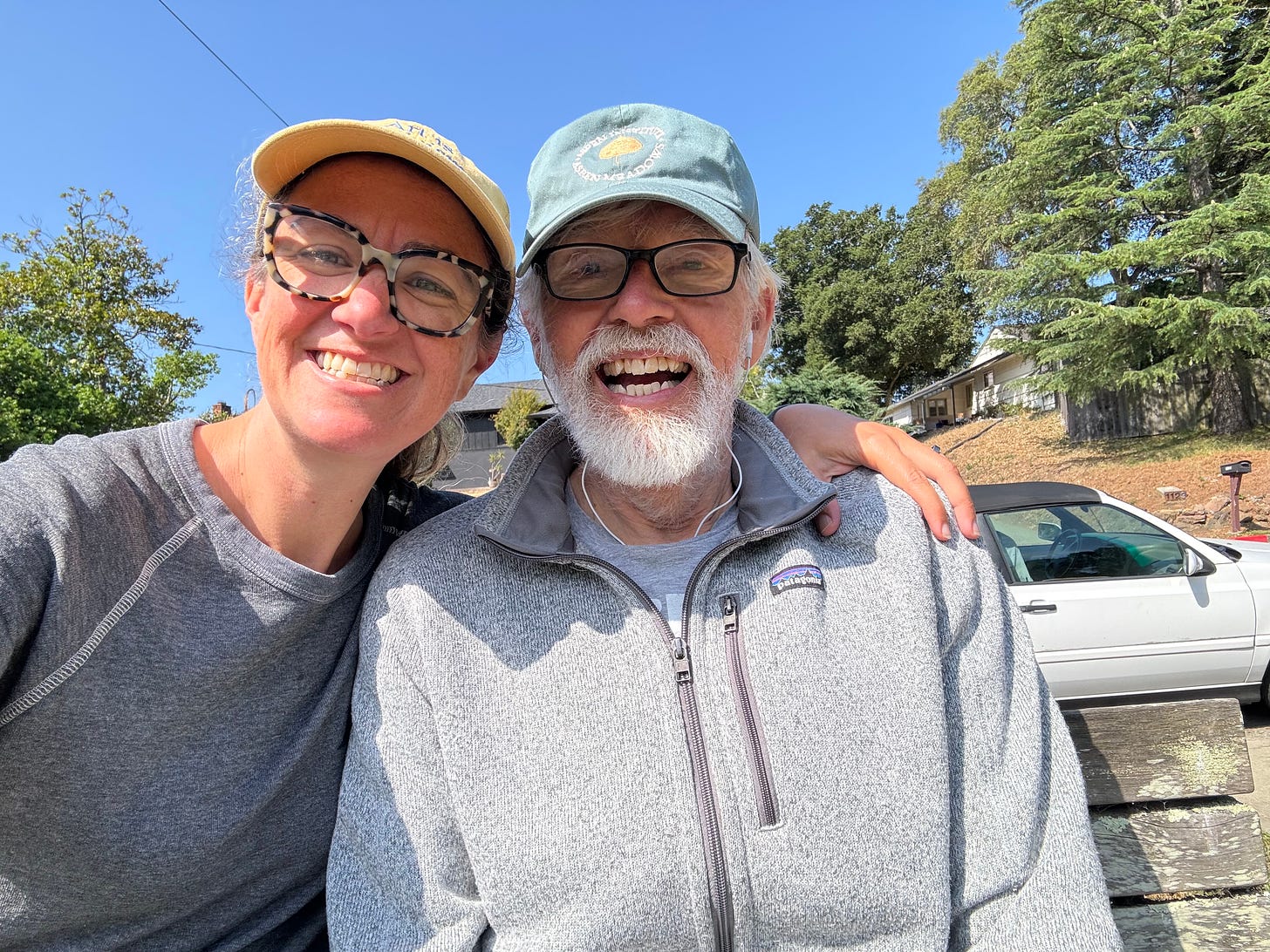




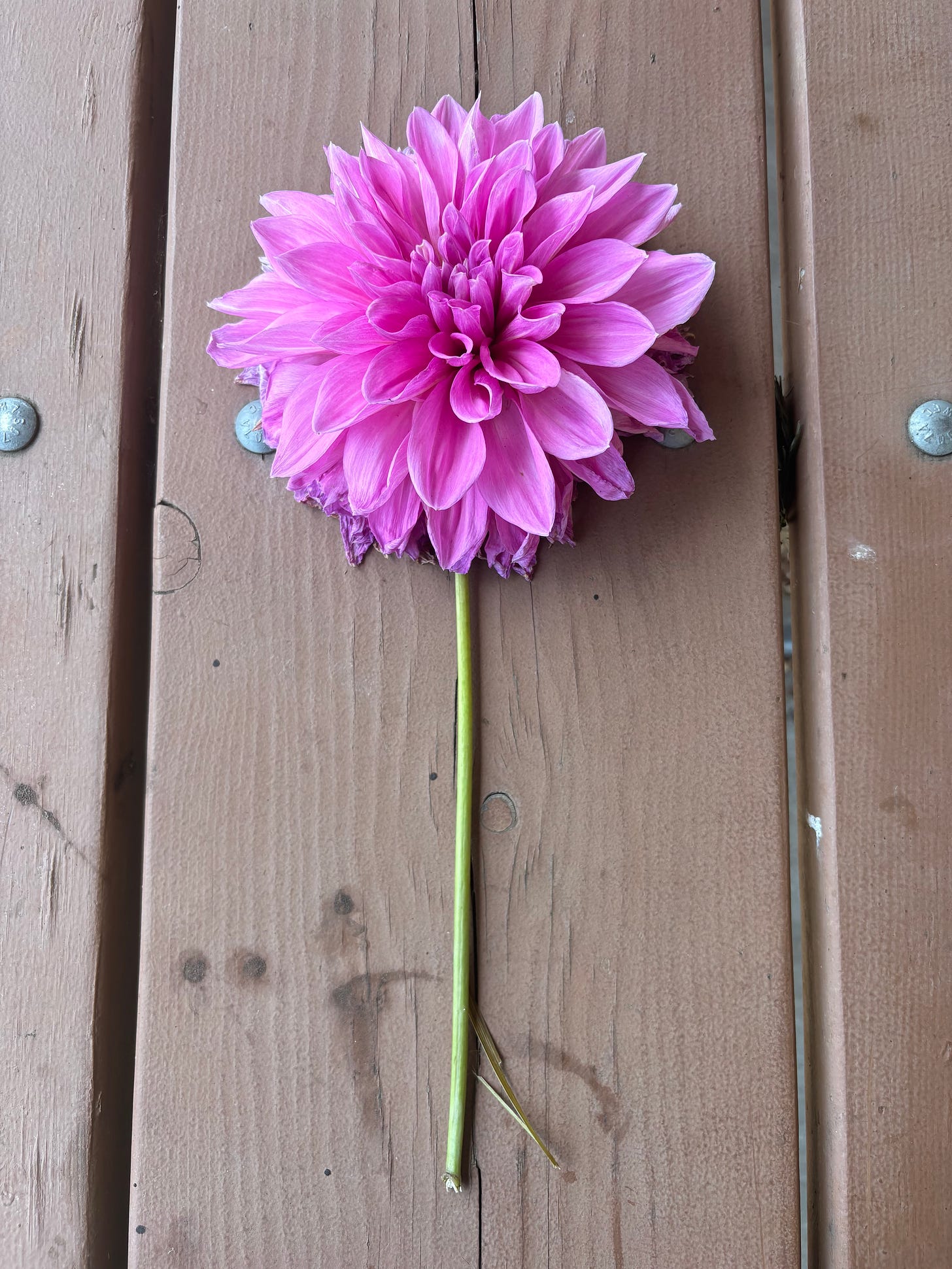
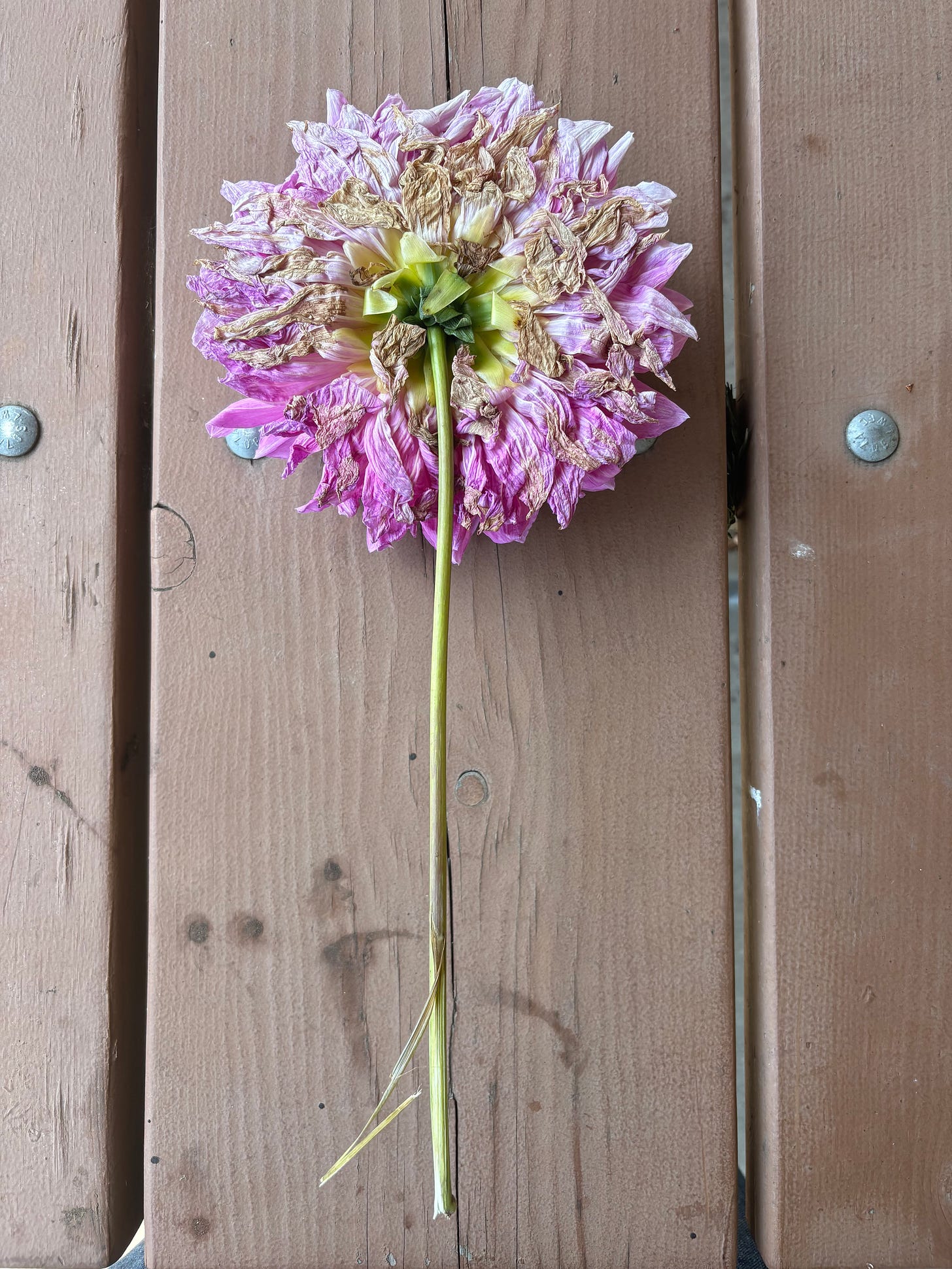
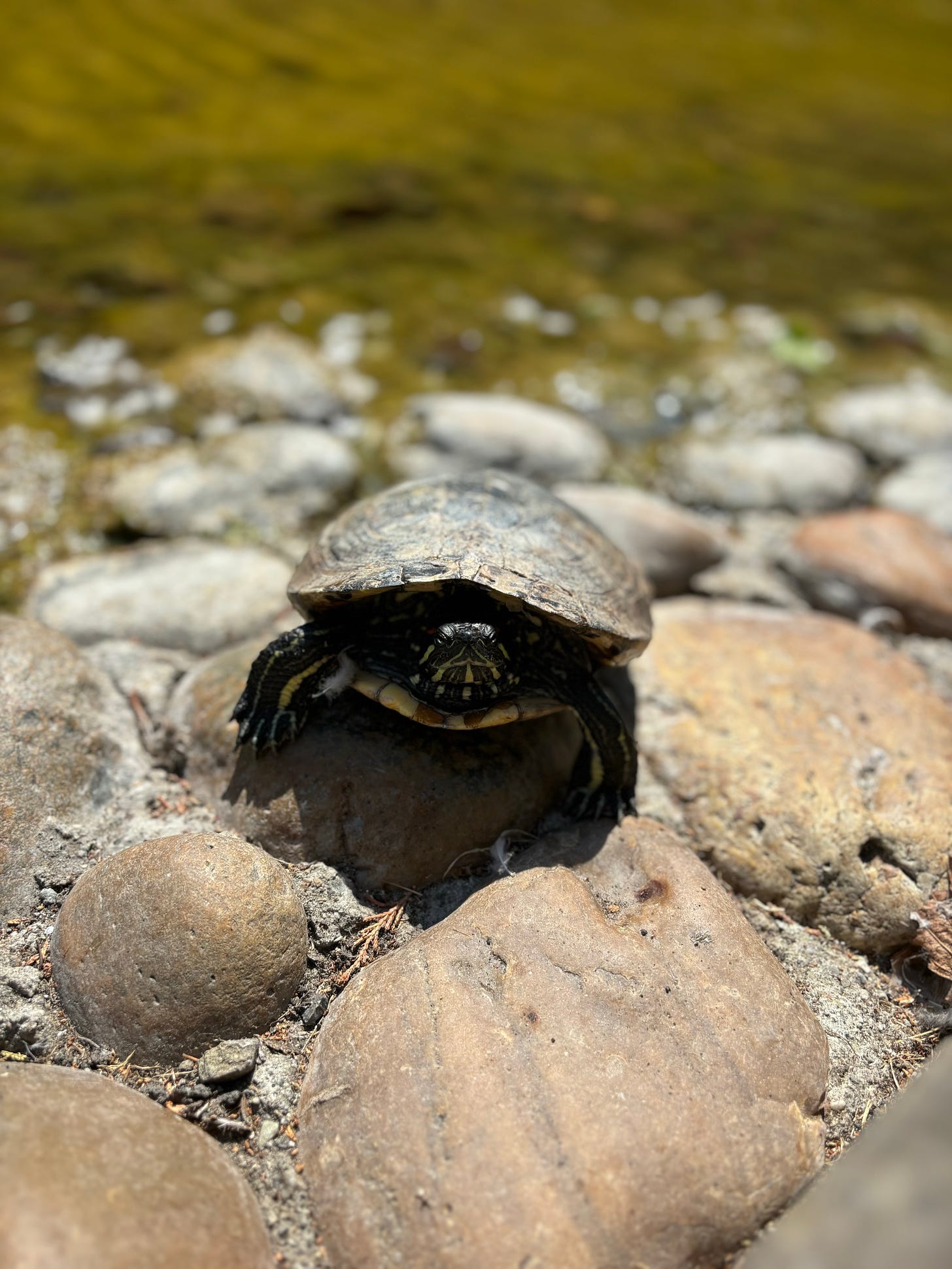
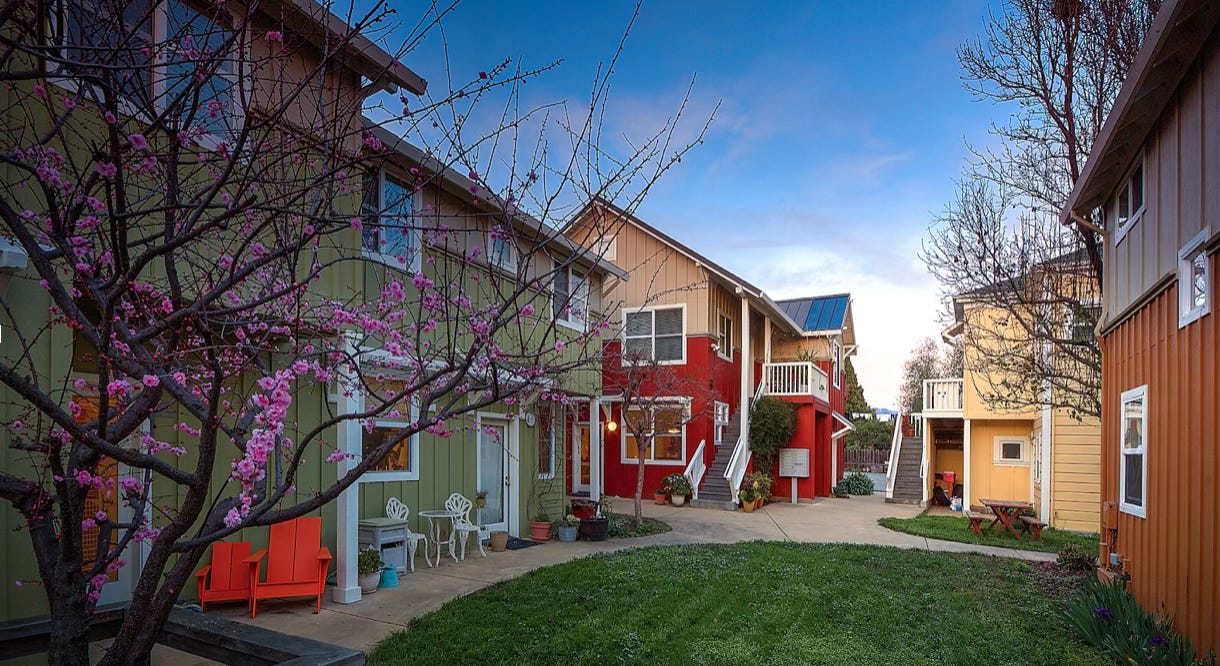
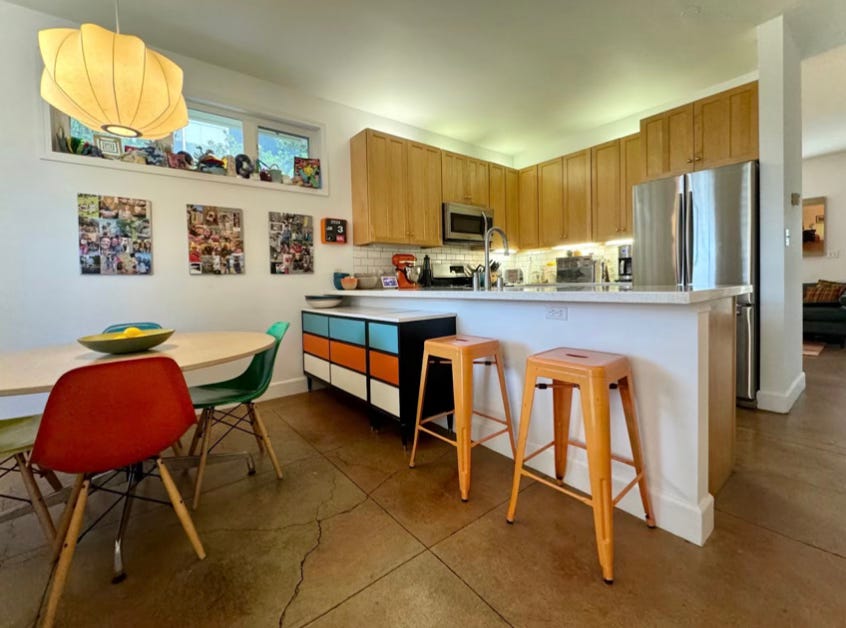
"You’re doing so good!" What a gift all around that your family and your brother's family are all there together. I once interviewed a young leader who was facing his own cancer and his mother's end of life, trying to frame his "leadership" in that season when so many of his peers were engrossed in launching careers. He said he realized his vocation was being called to "walk his mother home." Those words have stayed with me ever since, in the years I walked with my mom into the Light and now living with my 82 year old dad, experiencing interdependence in a new and "final" way. I wish you so much love and Light and heart peace! Thank you for sharing your journey. xoxox
I kept hearing 'commitment' as I was reading, lived commitment to love on the ground, and sending further taproots into underground networks that are as yet unseen but which will resurface, gradually, and then allatonce...